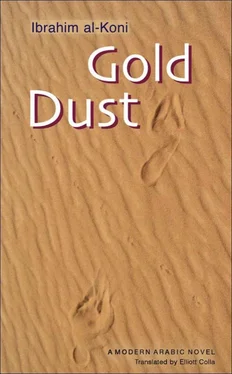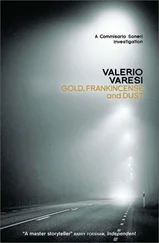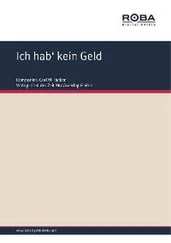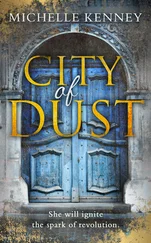Again, the cry of distress rent the desert silence. Again, it echoed across the mountains, “Aw-a-a-a-a-a-a.”
His nostrils were singed by another waft of burning flesh. A scorching gust of wind carried it into his vault, setting fire to his heart in the process. The smell of burning skin became a blaze in his heart.
He removed the stones blocking the crevice, and the light blinded his eyes. He crawled on all fours, shielding his eyes. The scorching smell of burning flesh intensified as it mixed with the smoke of burning wood. He spotted the men gathered around the piebald on the slope. Some of them pulled on ropes, while others heated up knives and irons in the shimmering fire.
The smell of burning flesh was finally too much to bear.
Ukhayyad scrambled down the mountain face. Stones tore at his skin and clothes — a jagged rock ripped the turban from his head.
Wounded, bareheaded, and in tatters, he stood before them. They studied him in silence. He glared at them in silence. The old herder was not among them, and Ukhayyad felt a vague sense of relief. Without exchanging a word, the men tied him up. The piebald’s body was bloodied and burnt. They had even scarred his face with hot metal and ripped open his muzzle with a red-hot knife. Blood poured from the animal’s torn hide.
“Remember how Tanis took revenge on her wicked co-wife?” asked a burly man who reeked of burnt flesh.
He then turned toward Ukhayyad. “Do you remember how the co-wife got what she deserved?”
They bound his arms and legs with rope, then brought over two camels. They tied his right hand and foot to one, his left hand and foot to the other. The hefty man began to call, “Whip them, whip them!” The tongue of the lash licked at their bodies and the camels bolted — one to the right, the other to the left. Suddenly, Ukhayyad found himself stretched between the realms once more. Again, he was tumbing into the well, into the space between the edge above and the water below. Again, he was falling to that space where he had once glimpsed paradise. The houris began to trill and on Jebel Hasawna the jinn began to wail and wail.
“The sheikhs won’t believe us if we don’t bring them a piece of evidence,” a voice said.
With bloody arms and legs, Ukhayyad attempted to pull his torn body along the ground. The camel on the right, the stronger of the two, had ripped Ukhayyad’s thigh and arm from their sockets. His body was broken, yet Ukhayyad tried to lift his head.
The hefty man approached, sword glittering in hand. Ukhayyad asked one of them to help him — but was repulsed. He turned toward the mountain and, with a loud noise, his insides began to pour out. Another man walked over to Ukhayyad and gripped his bare head in his hands. The sword flew across the sky. As it moved, it seemed to perform its ablutions in the waters of the sky, in the cruel rays of the sun. Then it landed across his neck.
Across the twilight a sudden glow broke. The dream house of shadows was shaken by a massive earthquake. Its terrible wall began to collapse, struck by the blow of a sword of light. Only now did the invisible being of his dreams finally show itself as clear as day. It had finally become manifest in that moment when Ukhayyad could no longer tell anyone what he had seen.
G old Dust takes place in a world of contrasts — desolate rock plateaus, lush oases, and far-flung pastures abounding in mythical flora and fauna, all surrounded by endless wastes traversed solely by camel herders, dervishes, and the occasional caravan. The focus of this novel is not the desert itself, but rather the lives of desert dwellers as they struggle against forces beyond their control. In an echo of Ibn Khaldun’s great treatise on human society, al-Muqaddima , time in Gold Dust moves in cycles rather than lines. Indeed, the desert is not timeless but seasonal — with wet seasons of abundance and flourish, followed by years of drought and hardship. Human time, too, moves in this way in the novel: characters grow and wither, win and lose; caravans come and go, bringing with them holy men and refugees, riches, and misery. And always, in the background, there are the winds of empire that buffet the desert world, with barbaric French and Italian incursions from the north and reverberations from the rise and fall of African kingdoms to the south.
What may not be so obvious to English readers is that al-Koni’s world of nomads is not necessarily a familiar one to most Arab readers. The Arabic novel has always been dominated by stories of the city, although peasant communities of the settled agricultural lands of the Arab world have had their place in the canon as well. Aside from the work of novelists such as Abdelrahman Munif and Miral al-Tahawy, the nomadic segment of Arab society — once so economically and politically significant that it inspired Ibn Khaldun’s classic — has been largely absent from the Arab novelistic imagination.
Though noteworthy, this fact is not altogether surprising — for the historical rise of the novel as an art form is directly linked with the marginalization of nomadic pastoralism as a key component of Arab civilization. The very industrial era that enabled the one made the other obsolete. With labor performed by ever-increasing masses of men interacting with ever more powerful machines, human reliance on laboring beasts dwindled. In many parts of the world, nomadic pastoralists — such as the Tuareg of the Sahara or the Bedouin of Arabia — were the ones who used to supply sedentary societies with the animal-power that made things run. The plowing of fields, the milling of grain, the shipping of goods across vast continents — these were all ventures undertaken by men and animals laboring together. With the rise of the factory — and with it, the tractor, the train, and the car — men abandoned the society of animals for engines of their own making, and the age-old need for pastoralists came to an end. Ever since, we have only continued to cut our ties with the world of herdsmen. In the process we have cut ourselves off from what they knew, and their recognition that animals are more than just objects to be looked at, shorn, and eaten. Gold Dust appears in this light as a protest against the modern abandonment and objectification of animals, and an affirmation of the relationship between man and beast as one of interdependence, mutual recognition, and soul.
Since al-Koni’s work is so rooted in a particular world, translation is often not so much an act of finding equivalences as of tearing something from its sense. It is not just that his Arabic reads more like poetry than prose, with rhythms and resonances that have no correspondences outside the language. It is also that some of the references have little meaning beyond their original context. To this end, in the original Arabic, the author has himself inserted a number of footnotes to explain Tamasheq (Tuareg) words and customs, pre-Islamic pagan cosmology, and classical Sufism. Rather than burden the text with footnotes, some of his notes reappear here below (in summarized or expanded form) along with a short list of English-language sources recommended for readers interested in understanding better the ground from which this translation was uprooted.
The concept of nobility — as it relates to men and animals alike — is central for understanding certain aspects of this novel. Yet its nuances are not easily translated into societies that organize themselves around egalitarian values. Critical to the concept is, of course, the idea that some virtues are inherited by birth. Of equal importance, however, is the understanding that nobility is a character trait whose weight rests on a system of social recognition. Though one may be born noble, nobility itself is confirmed by certain features of one’s behavior — self-control and generosity being paramount. A failure of noble creatures — man or beast — to behave nobly not only points to a deviation from their natural selves but also their social role — and thus poses a threat to the social order itself.
Читать дальше












